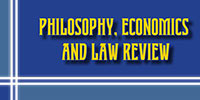Faruk HADŽIĆ
Independent Researcher, Bosnia and Herzegovina
ORCID iD: orcid.org/0000-0003-1158-7858
faruk.hadzic01@gmail.com
UDC 343.42
DOI 10.31733/2078-3566-2020-5-172-181
Keywords: Religious violence, Cultural violence, Genocide, Yazidis, ISIL, Terrorism, Religion, Kurds
Abstract. The study analyzes religious and cultural violence, focusing on the Genocide against Yazidis within the broader Kurdish socio-political framework. The ISIL genocidal intent against Yazidis includes forced relocation and practice attitudes that apply to elitism and sexual violence. It is part of the destruction of the group in terms of destruction of the spirit, will live and life itself (members) of the group. However, it should be noted that such views do not mean the legal argument for recognizing cultural genocide but an attempt to clarify the meaning of physical and biological destruction. Violence committed «in the name of religion» belongs to the dark side of religion. Violence (mostly) does not arise from the moral teachings of religions but from a perverted understanding of religion. The killing of members of a religious group is a form of physical genocide, and the threat of murder to ban religion was a way to commit cultural, that is, religious genocide. Sexual violence is different from all other weapons. The global community needs to be united to protect women and children during the war. Religion is used as an excuse for violence when the struggle is to defend the essential identity, when it is inconceivable to lose the struggle and when the struggle cannot be won. Religious support for violence causes the terrorist policy to become uncompromising. Paradoxically, just as terrorism produces fear of violence, so does the fear of terrorism produce violence.
References
- Bruinessen, M. (2000). Transnational aspects of Kurdish question. European University Institute.
- H. (2016). Vecernji. Shocking confession of Yazidi women held as ʼslavesʼ by Islamic State terrorists, https://www.vecernji.hr/vijesti/one-su-glas-svih-zena-koje-je-silovao-isil-1136077 [in Croatian].
- Eagleton, T. (2010). Reason, Faith, and Revolution, Reflections on the God Debate. Yale University press.
- Eagleton, T. (2011). On evil. Yale University press.
- Ferrera, M. (2003). Peoples of the world. New Delhi Om Book Service.
- Gunter, M. (2018). Historical Dictionary of the Kurds. Rowman & Littlefield.
- Holden, S. (2012). A Documentary History of Modern Iraq. University Press of Florida.
- Hovanissian, A. (1999) Turkey: a Cultural Genocide. In: Chorbajian L., Shirinian G. (eds) Studies in Comparative Genocide. Palgrave Macmillan, https://doi.org/10.1007/978-1-349-27348-5_8.
- Kasapovic, M. (2016). Middle East, politics, and history. Faculty of Political Science. (in Croatian).
- Knezevic, N. (2012). Contemporary Political Theology in the West. Otacnik. (in Serbian).
- Maisel, S. (2018). The Kurds: An Encyclopedia of Life, Culture, and Society. ABC-CLIO.
- Sabato, E. (2012). On Heroes and Tombs. Penguin Books Ltd .
- Schabas, W. (2000). Genocide in International Law: The Crimes of Crimes. Cambridge University Press.
- Shand, S. (2018). Sinjar, 14 Days that Saved the Yazidis from Islamic State. Lyons Press.
- Simonitit, I. (2014). Three gods, two cultures, one civilization. Naklada Pavicic. (in Croatian).
- Srzic, A. (2014). Yazidis – persecuted because they worship a fallen angel, https://www.autonomija.info/jezidi-proganjani-jer-obozavaju-palog-andela.html. [in Serbian].
- UN Report, (2016). UN human rights panel concludes ISIL is committing genocide against Yazidis.https://news.un.org/en/story/2016/06/532312-un-human-rights-panel-concludes-isil-committing-genocide-against-yazidis.
- Zink, R. (2012). The installation of fear. Teodolito. (in Spanish).
